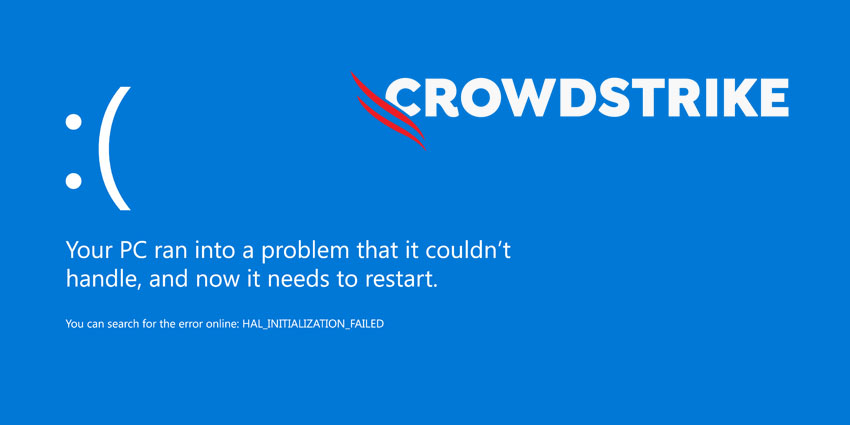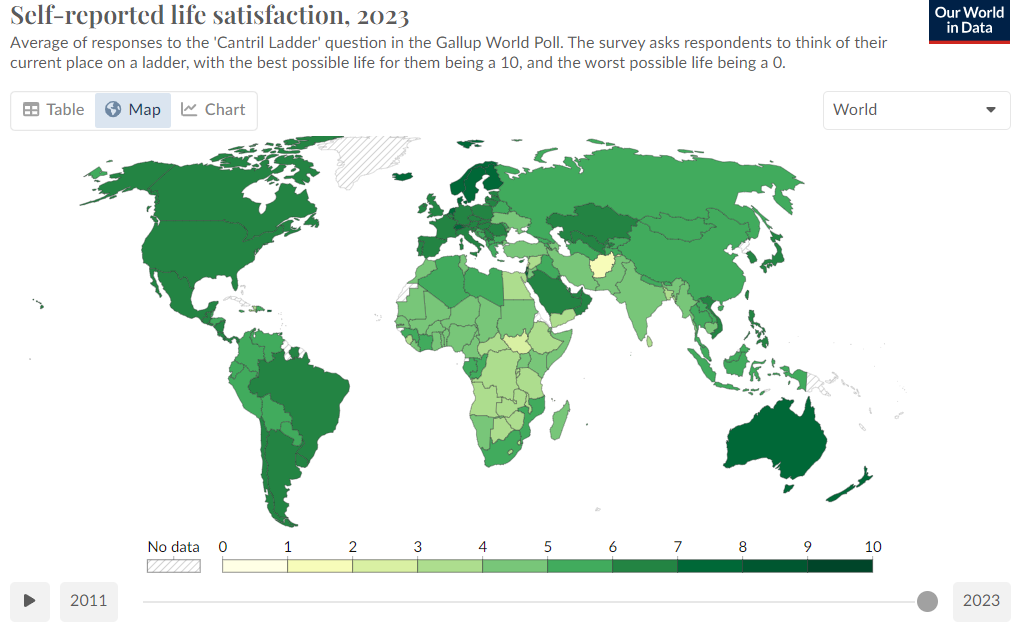
I was talking with my 8 year-old son and said that the whole world had just stopped. He asked what do you mean? I replied that everything stopped. Airlines, banks, shops, trains, hospitals and more. He asked what happened? I said that an update from a company to the core of the computer systems of the world had broken all of the computer systems, and nothing worked anymore. He replied but my brain and my heart still works.
His comment stopped me in my tracks.
So, old news today, the whole world was grounded by the CrowdStrike update to Microsoft systems. In case you were sleeping:
CrowdStrike is actively working with customers impacted by a defect found in a single content update for Windows hosts. Mac and Linux hosts are not impacted. This was not a cyberattack.
CrowdStrike is a security system used in Windows and other providers, and the update brought down most Microsoft servers, resulting in the media initially blaming the whole problem on Microsoft.
Microsoft IT outage live: recovery from ‘largest outage in history’ may take weeks
This was a huge branding damage moment, particularly as it was not Microsoft but their partner CrowdStrike that caused the issue. So, I spent most of yesterday talking with people about how Microsoft was down. But then, whether it is Microsoft or CrowdStrike, what got me about yesterday's outage is that life came to a halt for many. We could not pay bills, board flights, share social updates and more. But then that’s what got me with my son’s comment. As long as our hearts are beating and our brains are thinking, do we need this digital life?
In fact, it made me reflect on the fact that a lot of our digital lifestyle is just stressing us out. It reminded me, for example, that some of the poorest nations are the happiest because they are not digital. This is from Big Think:
The Melanesian people living in the Roviana and Gizo regions of the Solomon Islands are some of the poorest in the world. They live a subsistence lifestyle, fulfilling their needs by fishing and farming. Occasionally, they sell their goods at the local marketplace to buy processed foods or pay their children’s school tuition fees. The luxuries of modern life — smartphones, the internet, TV, memory-foam mattresses — are hard to find. But despite this materially simple existence, the Melanesians express higher life satisfaction than residents of Finland and Denmark, who regularly make headlines as the happiest in the world.
And it made me reflect upon the fact that all of our modern lifestyle – flying, banking, shopping and such – is so dependent on a digital world of connectivity that, when it goes down, we cannot cope. Our lives are lost and our stress levels max out.
But, when my son said the world has not stopped because my heart is beating and my brain is thinking, you come down to Earth and recognise the reality. The reality is that most of this digital stuff does not matter as long as you have food to eat and air to breathe. The problem most of us have is that, to get food and air, we have to work digitally these days … apart from those who can do this naturally.
Maybe that’s why the poorest are the happiest … or maybe not.
In a deep data dive, Our World in Data finds that the wealthiest nations are the happiest but, more interestingly, finds nearly the whole of the rest of the world is pretty happy … except those involved in a war.
#Truth ... oh, and meanwhile, my heart is still beating and brain is still thinking.
Postscript: interesting update on this from The Payments Association
Postscript#2: Microsoft blames EU regulations for the outage
Microsoft has blamed EU rules for enabling a faulty security update to cause the world’s biggest IT outage.
The software giant said a 2009 agreement with the European Commission meant it was unable to make security changes that would have blocked the CrowdStrike update that triggered widespread travel and healthcare chaos on Friday.
CrowdStrike’s Falcon system, designed to prevent cyber attacks, has privileged access to a key part of a computer known as the kernel.
This meant that a faulty update last week resulted in millions of Windows computers and servers being unable to load at all, leading to flight cancellations, contactless payments not working and GP surgeries being unable to make appointments.
Microsoft, which offers its own alternative to CrowdStrike known as Windows Defender, agreed in 2009 to allow multiple security providers to install software at the kernel level amid a European competition investigation.In contrast, Apple blocked access to the kernel on its Mac computers in 2020, which it said would improve security and reliability.
A Microsoft spokesman told the Wall Street Journal that it was unable to make a similar change because of the EU agreement.
Queues of passengers at Bangkok's Don Mueang airport in Thailand on Saturday after a global IT outage caused widespread disruption - Mailee Osten-Tan/Getty© Provided by The Telegraph
Microsoft said on Saturday that the CrowdStrike update had affected 8.5m Windows devices. This was less than 1pc of all machines operating the software, but had major impacts because CrowdStrike is widely used in businesses.The faulty update caused a blue error screen on many computer screens, rendering them unusable until they were fixed.
CrowdStrike said on Monday that “a significant number” of the affected computers were back online and apologised for the disruption.
Figures from data company OAG showed that 9,650 flights had been cancelled between Friday and Sunday. While many airlines had recovered, 2,619 flights were cancelled on Sunday, with US airline Delta accounting for most of those.
The NHS said that its systems were back online but that “there still may be some delays as services recover”.
The European Commission pursued Microsoft in the early 2000s over concerns that the company’s popular Windows software gave it an unfair advantage in other areas such as web browsers.
In 2009 the company agreed to boost choice for computer users in browsers and other software.
It comes as new European laws are forcing Apple to open up its iPhone. Under the new Digital Markets Act, the company will have to allow alternative app stores and web browser engines on the iPhone.
Apple has claimed the changes will make the iPhone less safe.
Chris M Skinner
Chris Skinner is best known as an independent commentator on the financial markets through his blog, TheFinanser.com, as author of the bestselling book Digital Bank, and Chair of the European networking forum the Financial Services Club. He has been voted one of the most influential people in banking by The Financial Brand (as well as one of the best blogs), a FinTech Titan (Next Bank), one of the Fintech Leaders you need to follow (City AM, Deluxe and Jax Finance), as well as one of the Top 40 most influential people in financial technology by the Wall Street Journal's Financial News. To learn more click here...


